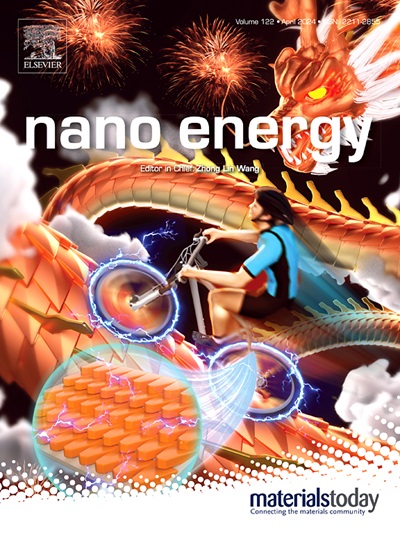Enhanced electrocatalytic synthesis and degradation enabled by triboelectric effect
IF 16.8
1区 材料科学
Q1 CHEMISTRY, PHYSICAL
引用次数: 0
Abstract
Electrocatalytic technology has become an important research direction in the field of new energy conversion and pollution control due to its high efficiency and environmental protection. The triboelectric effect, as a physical phenomenon that can directly convert mechanical energy into electric energy, provides a brand-new idea for the efficient driving and enhancement of electrocatalytic process. This paper reviews the application potential of the triboelectric effect in electrocatalytic synthesis and degradation processes, systematically discussing the theoretical foundation, enhancement mechanisms, reactor design, and practical applications of triboelectric-enhanced electrocatalysis. Firstly, this paper elaborates on the theoretical foundation of the triboelectric effect in the field of electrocatalysis, with a focus on analyzing the intrinsic mechanisms of mechanical energy-driven interfacial electron transfer and active species generation. Secondly, for both catalytic synthesis and pollutant degradation, the paper examines the key role of the triboelectric effect in optimizing reaction pathways, enhancing energy conversion efficiency, and improving reaction selectivity. Subsequently, the design principles and key construction elements of triboelectric electrocatalytic reactors are summarized, and their performance in synthesizing compounds and degrading pollutants in practical applications is discussed. Finally, the paper looks ahead to the challenges and future directions of triboelectric-enhanced electrocatalysis technology, aiming to provide theoretical support and practical guidance for related fundamental research and engineering applications.

电催化技术因其高效、环保等特点,已成为新能源转换和污染控制领域的重要研究方向。三电效应作为一种能将机械能直接转化为电能的物理现象,为电催化过程的高效驱动和强化提供了全新的思路。本文综述了三电效应在电催化合成和降解过程中的应用潜力,系统论述了三电增强电催化的理论基础、增强机理、反应器设计和实际应用。首先,本文阐述了三电效应在电催化领域的理论基础,重点分析了机械能驱动的界面电子转移和活性物种生成的内在机理。其次,针对催化合成和污染物降解,论文探讨了三电效应在优化反应途径、提高能量转化效率和改善反应选择性方面的关键作用。随后,总结了三电催化反应器的设计原理和关键构造元素,并讨论了它们在实际应用中合成化合物和降解污染物的性能。最后,本文展望了三电增强电催化技术面临的挑战和未来发展方向,旨在为相关基础研究和工程应用提供理论支持和实践指导。
本文章由计算机程序翻译,如有差异,请以英文原文为准。
求助全文
约1分钟内获得全文
求助全文
来源期刊

Nano Energy
CHEMISTRY, PHYSICAL-NANOSCIENCE & NANOTECHNOLOGY
CiteScore
30.30
自引率
7.40%
发文量
1207
审稿时长
23 days
期刊介绍:
Nano Energy is a multidisciplinary, rapid-publication forum of original peer-reviewed contributions on the science and engineering of nanomaterials and nanodevices used in all forms of energy harvesting, conversion, storage, utilization and policy. Through its mixture of articles, reviews, communications, research news, and information on key developments, Nano Energy provides a comprehensive coverage of this exciting and dynamic field which joins nanoscience and nanotechnology with energy science. The journal is relevant to all those who are interested in nanomaterials solutions to the energy problem.
Nano Energy publishes original experimental and theoretical research on all aspects of energy-related research which utilizes nanomaterials and nanotechnology. Manuscripts of four types are considered: review articles which inform readers of the latest research and advances in energy science; rapid communications which feature exciting research breakthroughs in the field; full-length articles which report comprehensive research developments; and news and opinions which comment on topical issues or express views on the developments in related fields.
 求助内容:
求助内容: 应助结果提醒方式:
应助结果提醒方式:


